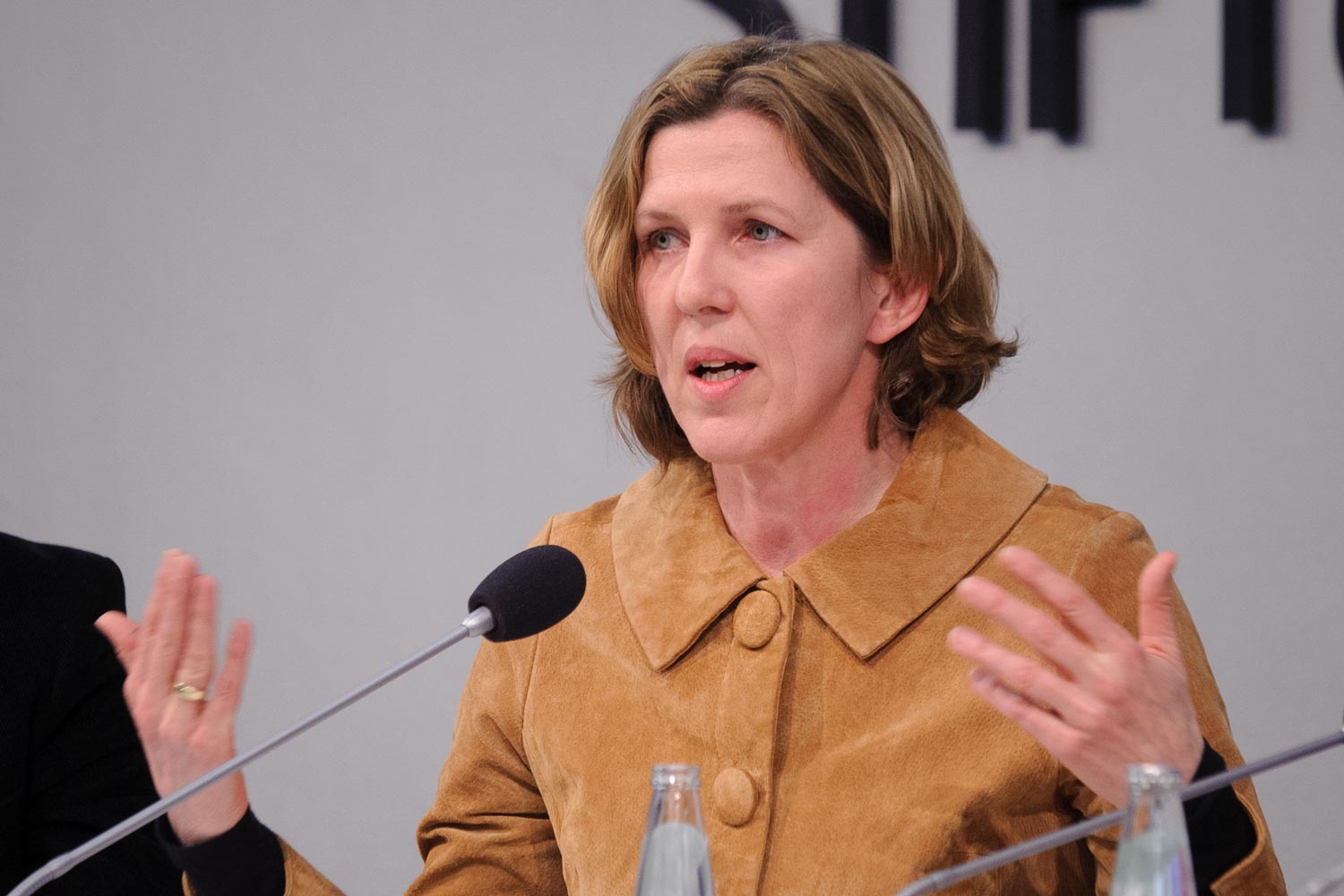Renowned German journalist and longtime Stanford lecturer Sylke Tempel died earlier this month during a powerful storm in Berlin.

Sylke Tempel (Image credit: Stephan Roehl)
Tempel, who taught at Stanford’s Bing Overseas Studies Program in Berlin for over two decades, passed away Oct. 5 after a tree fell on her during storm Xavier. That evening trying to leave a work event, Tempel stepped out of a car to move debris in its way, when she was struck by a falling beech tree, according to her family. She was 54.
“This was a tragic accident that touched many people,” said Russell Berman, Stanford professor of comparative literature and of German studies. “Her death is a big loss to the Stanford community and to the international political discussion.”
Tempel was one of the leading German foreign policy experts and frequently invited to discuss international issues on German talk shows and panels. Since 2008, she has served as an editor-in-chief of Internationale Politik magazine and of Berlin Policy Journal, published by the German Council on Foreign Relations, a nonprofit foreign policy institute.
Tempel’s connection with Stanford goes back to 1994, when she started teaching courses at the university’s Berlin center. Tempel was also a Stanford Club of Germany Visiting Lecturer on Stanford’s main campus several times.
“We will remember Sylke as the special woman she was, whose heart and mind won those of all who knew her,” said Karen Kramer, director of Stanford’s program in Berlin.
Tempel was a mentor to many Stanford students and taught classes on German history, international relations and globalization. Her last course, called Leading from Behind? Germany in the International Arena Since 1945, was held during the 2016-17 fall quarter. She was scheduled to teach the same seminar in the 2017-18 spring quarter.
Tempel went out of her way to welcome and nurture students outside the classroom. Kramer said she remembers one evening when Tempel invited the students representing the Berlin program in a Bing Overseas Studies Program workshop on World War II to her home for a collaborative dinner. As the group cooked together, she helped the students practice their presentations before the event.
“She was a charismatic teacher, a brilliant political analyst and a witty and warm person,” said Berman, who has known Tempel for about 30 years. “She inspired many students.”
Tempel began her career as a freelance journalist in Israel during the late 1980s and in the 1990s after graduating in 1988 from the Ludwig-Maximilian University of Munich with a master’s degree in political science and Jewish studies. She earned her doctorate in political science, Jewish studies and history from the Bundeswehr University Munich.
Tempel concentrated on Jewish history and culture in her work. A prolific author, she published several books, including a 2008 volume, Israel: Reise durch ein altes neues Land (Israel: Journey Through an Old New Country). Her latest work, a 2011 biography, profiled the life of an anti-Nazi activist who, together with her husband, fought to subvert German human rights abuses during Adolf Hitler’s regime: Freya von Moltke: Ein Leben – Ein Jahrhundert (Freya von Moltke: A Life – A Century).
Friends and family described Tempel as an intellectually curious, generous person.
In her spare time, Tempel contributed to youth education by reading aloud to children as part of volunteer work at schools in disadvantaged neighborhoods of Berlin. She was also passionate about advancing the leadership and professional development of women in the field of international peace and security as a chairwoman of the Women in International Security organization, said Johannes Leithaeuser, a friend of Tempel’s.
“She was incredibly curious and always wanted to explore new things,” he said.
Tempel was planning to travel to Los Angeles in 2018 as part of the Thomas Mann Fellowship, a new program for German intellectuals that encourages transatlantic dialogue on international issues.
“It’s so devastating what happened,” Leithaeuser said. “It’s a loss not only for her family but for so many people who knew her and worked with her. Everybody feels that something was lost that’s not replaceable.”
Tempel is survived by her wife, Judith Hart; her parents; her sister, Kerstin Tempel; and her nephew, Moritz.
Stanford’s Berlin program will host an event in memory of Tempel on Friday, Oct. 20, following a memorial service at a church.